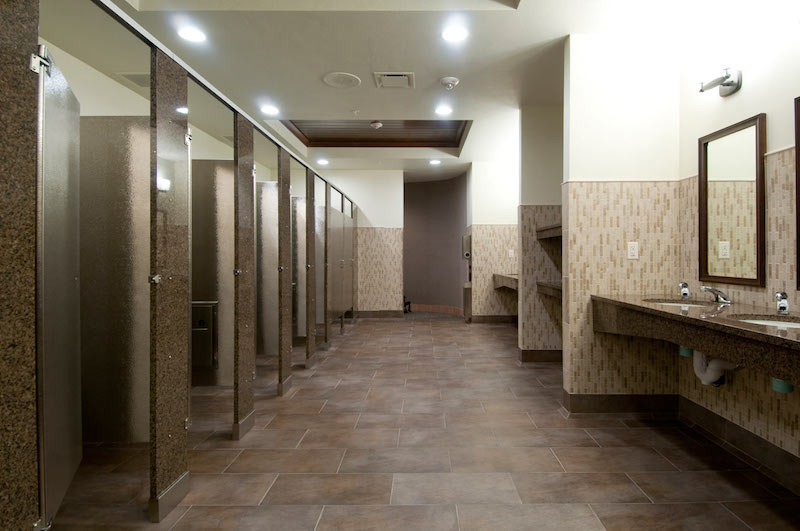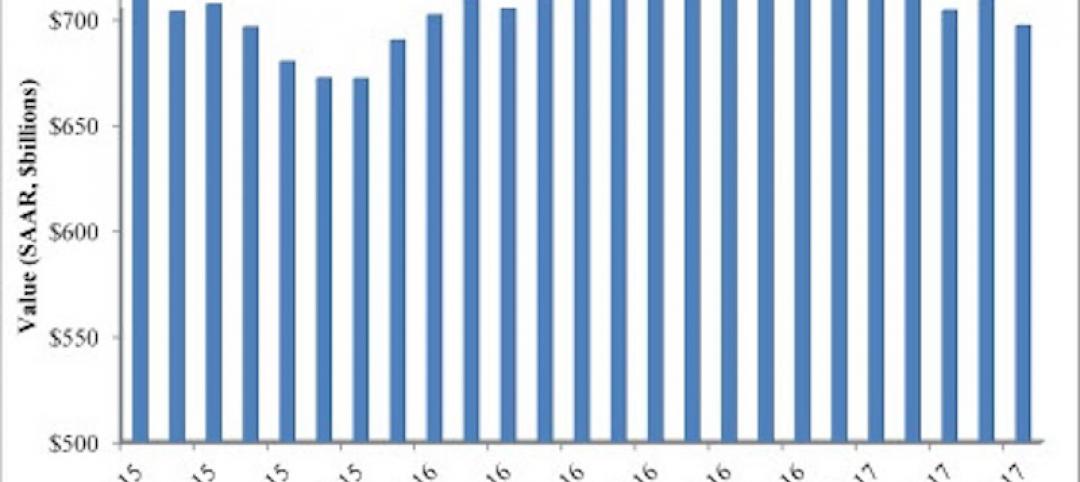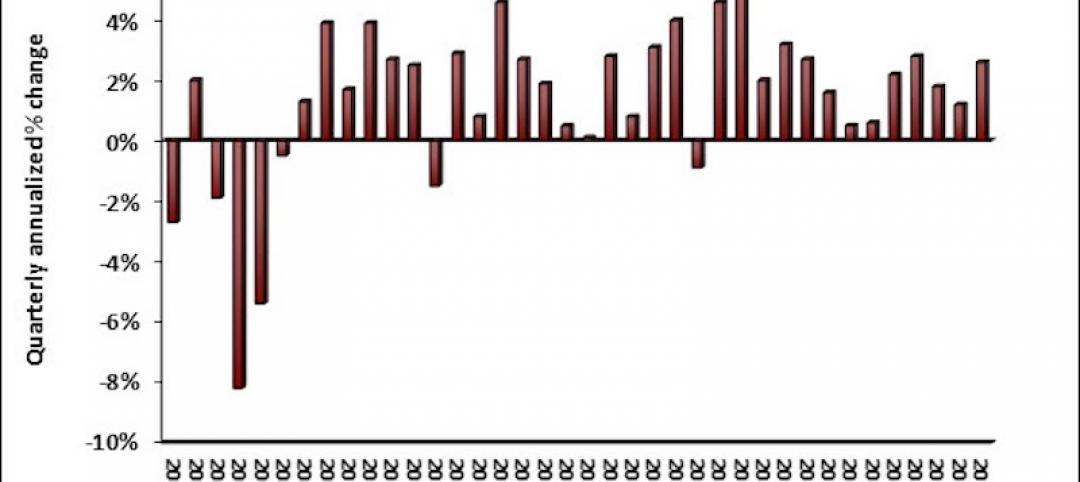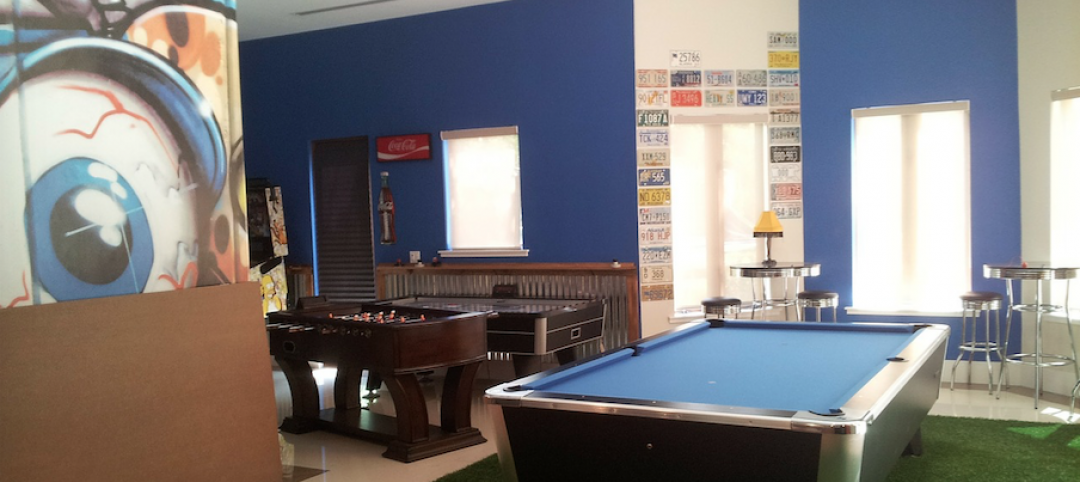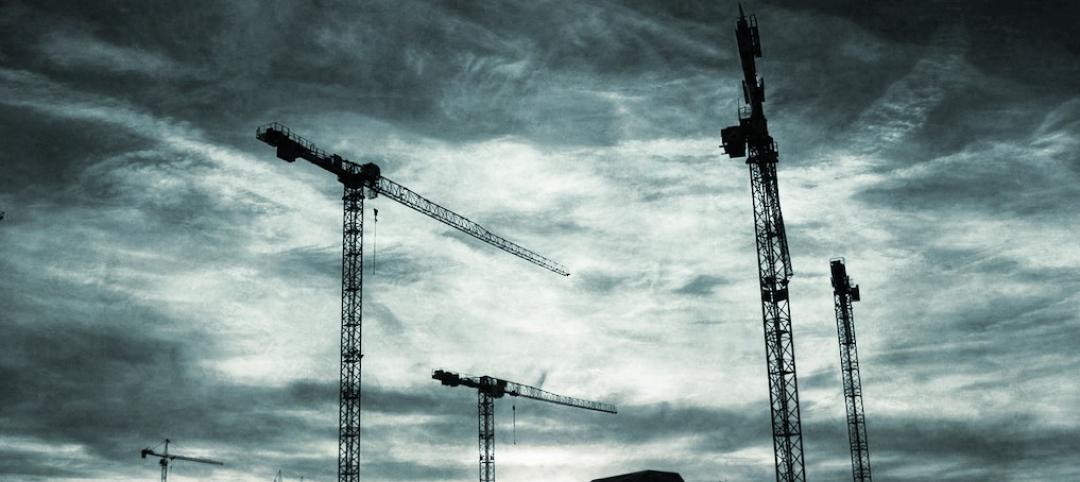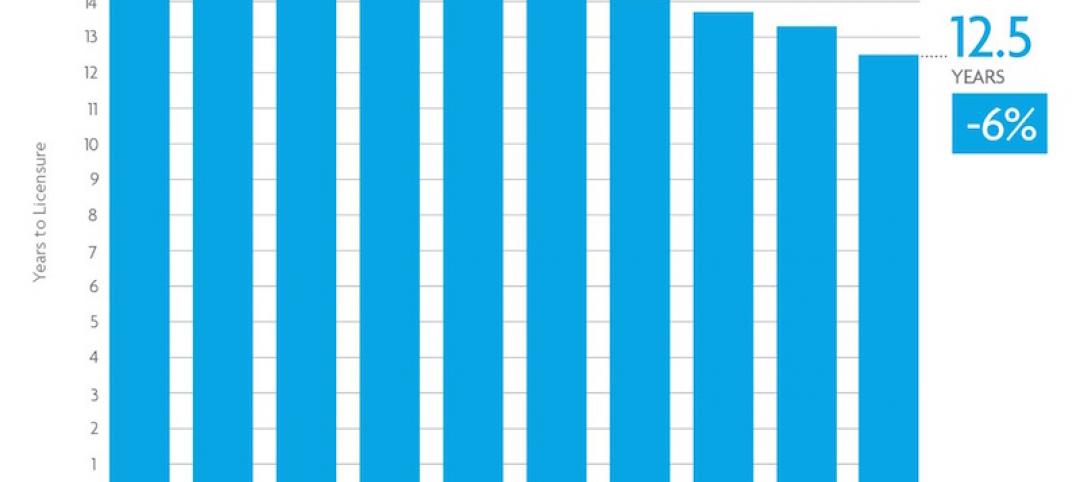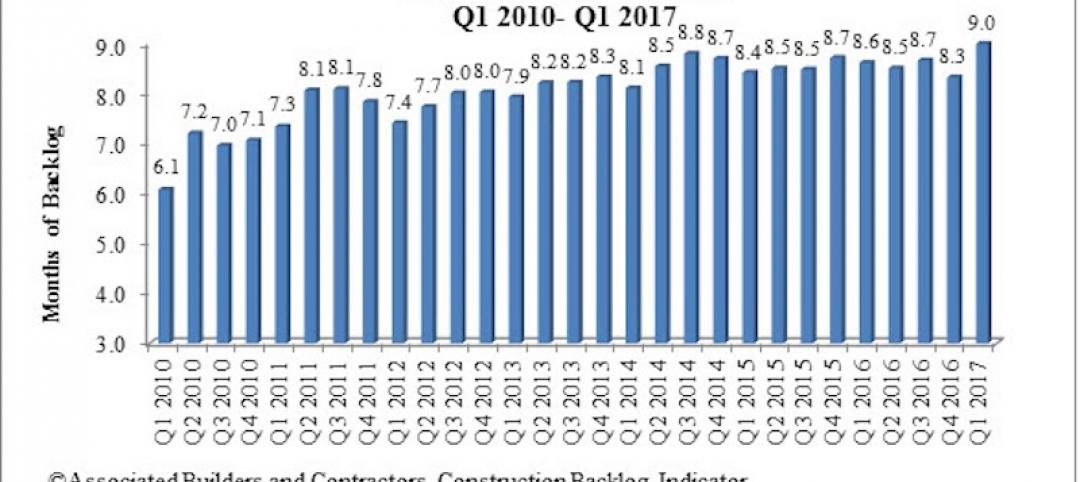According to a survey that tracks Americans’ attitudes toward restroom facilities, almost 70% report that they’ve had a particularly unpleasant experience in a public restroom due to the condition of the facilities—a nearly 20% increase since 2012.
That’s bad news for businesses, since Americans say they judge establishments based on the state of their restrooms. According to the 2016 Healthy Hand Washing Survey, conducted by Bradley Corporation, most consumers believe a bad restroom indicates poor management, lowers their opinion of the company, shows the business doesn’t care about customers, and makes them think the company is lazy or sloppy.
Bradley also delved into what factors makes restrooms so unappealing. Chief restroom grievances include toilets that are clogged or not flushed; a really bad smell; an overall appearance that’s dirty, unkempt, or old; and partition doors that don’t latch closed.
Key restroom improvements Americans would most like to see include improved cleanliness, a completely touchless experience, better stocking of restroom supplies, and a never-ending supply of paper towels—even if there are dryers.
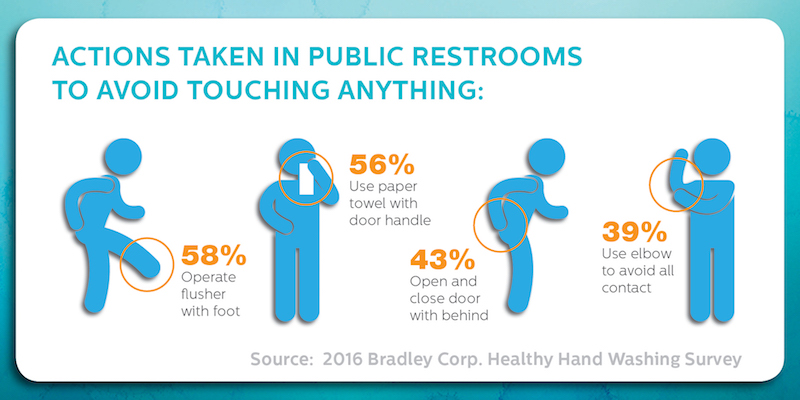 Inforgraphic: Bradley Corporation
Inforgraphic: Bradley Corporation
As for restroom improvements they’ve seen over the past two to three years in specific types of facilities, respondents gave the highest marks to medical buildings, airports, restaurants, and higher education facilities. At the other end of the spectrum, restrooms in convenience stores, gas stations, and truck stops deteriorated the most.
Americans make no secret about their disdain for coming into contact with germs in public restrooms. Restroom entrance door handles, stall handles, and faucet handles are the surfaces that make them the most squeamish. Almost 60% of respondents say they operate the toilet flusher with their foot to avoid germs. More than half use a paper towel to cover the door handle, while others use their back side to open and close doors.
The Healthy Hand Washing Survey queried 1,062 American adults online December 10-13, 2015, about their handwashing habits in public restrooms and concerns about germs, colds, and the flu. Participants were from around the country, were 18 years and older, and were fairly evenly split between men and women (47% and 53%).
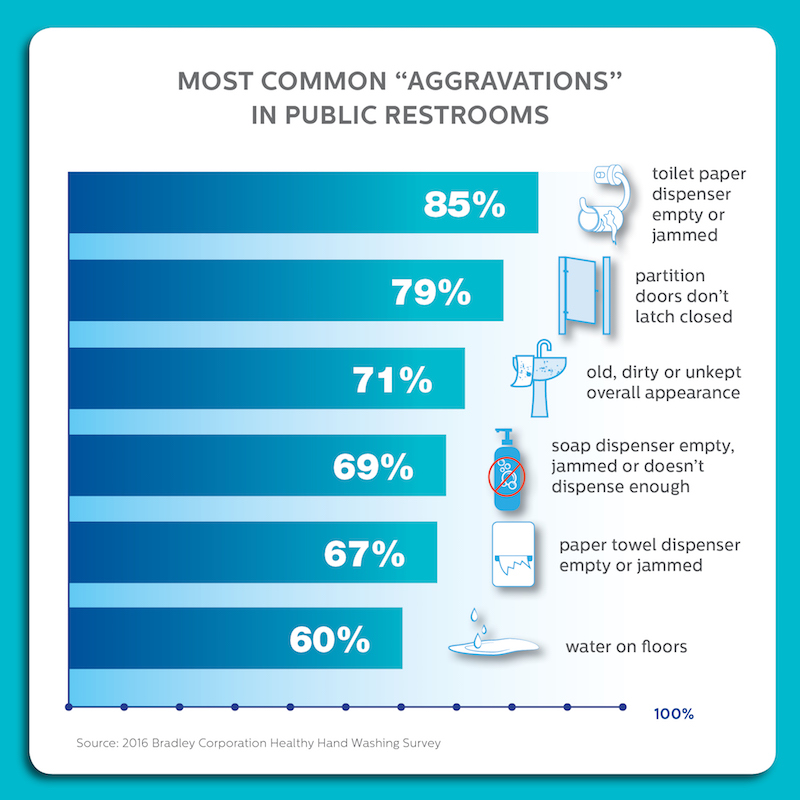 Inforgraphic: Bradley Corporation
Inforgraphic: Bradley Corporation
Related Stories
Market Data | Aug 2, 2017
Nonresidential Construction Spending falls in June, driven by public sector
June’s weak construction spending report can be largely attributed to the public sector.
Market Data | Jul 31, 2017
U.S. economic growth accelerates in second quarter; Nonresidential fixed investment maintains momentum
Nonresidential fixed investment, a category of GDP embodying nonresidential construction activity, expanded at a 5.2% seasonally adjusted annual rate.
Multifamily Housing | Jul 27, 2017
Game rooms and game simulators popular amenities in multifamily developments
The number of developments providing space for physical therapy was somewhat surprising, according to a new survey.
Architects | Jul 25, 2017
AIA 2030 Commitment expands beyond 400 architecture firms
The 2016 Progress Report is now available.
Market Data | Jul 25, 2017
Moderating economic growth triggers construction forecast downgrade for 2017 and 2018
Prospects for the construction industry have weakened with developments over the first half of the year.
Industry Research | Jul 6, 2017
The four types of strategic real estate amenities
From swimming pools to pirate ships, amenities (even crazy ones) aren’t just perks, but assets to enhance performance.
Market Data | Jun 29, 2017
Silicon Valley, Long Island among the priciest places for office fitouts
Coming out on top as the most expensive market to build out an office is Silicon Valley, Calif., with an out-of-pocket cost of $199.22.
Industry Research | Jun 27, 2017
What does the client really want?
In order to deliver superior outcomes to our healthcare clients, we have to know what our clients want.
Industry Research | Jun 26, 2017
Time to earn an architecture license continues to drop
This trend is driven by candidates completing the experience and examination programs concurrently and more quickly.
Industry Research | Jun 22, 2017
ABC's Construction Backlog Indicator rebounds in 2017
The first quarter showed gains in all categories.


